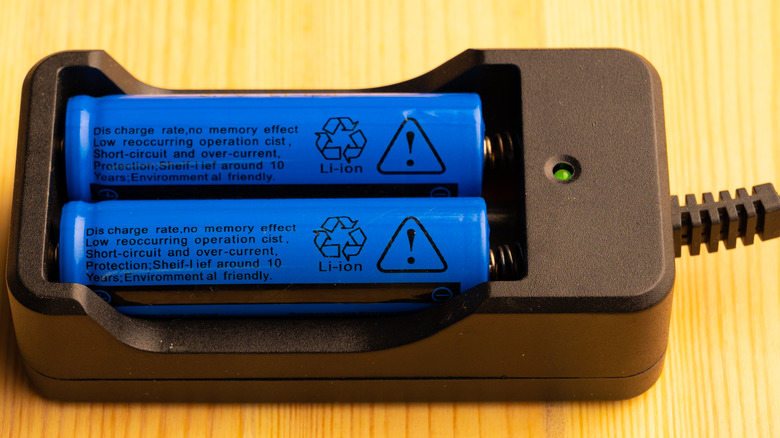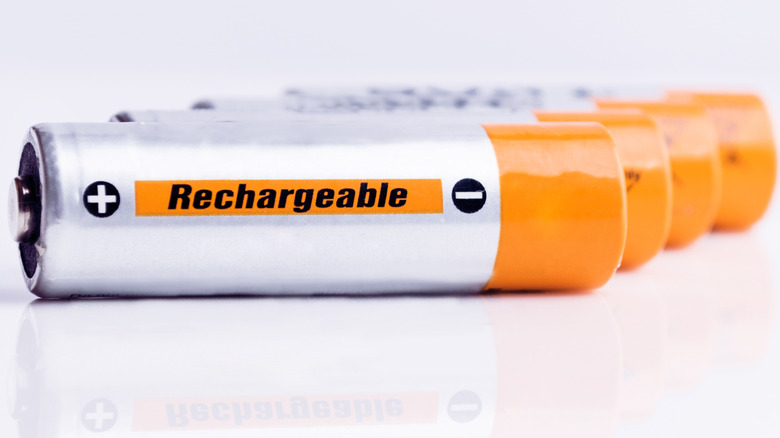Here's How To Know If A Rechargeable Battery Is Bad
Rechargeable batteries are, among other things, one of the most crucial tools that you'll want to add to your earthquake emergency kit. When the grid is down, these devices can efficiently power appliances like your smartphone, laptops, power tools, and even some medical equipment. Now, imagine what can happen when these batteries stop working as well as they can. It can be quite frustrating, especially if you are in a disaster, but just like anything that holds a charge, rechargeable batteries don't last forever, and they can even fail in the most inconvenient circumstances.
Now, whether you're using a nickel-metal hydride battery or a lithium-ion battery, knowing when one is on its last legs shouldn't be hard. Age is a crucial factor, as the average lifespan of most batteries is a couple of years, but the longevity of these batteries depends on several factors, like temperature and overcharging. The brand of the battery will also make a key difference. Luckily, if the batteries are nearing the end of their service life, they'll definitely send signals that something is wrong.
From longer charging times and feeling unusually hot, to reduced run time and even physical damage, this is your battery's way of telling you something is failing. You definitely don't want to use a bad battery on your device. It will affect its performance level, and even pose several safety risks. With that in mind, here are some common red flags that you should look out for before tossing a rechargeable battery into your device.
Here's how to know that your rechargeable battery is bad
As convenient as rechargeable batteries are, they can be quite annoying. A healthy battery will power your devices for its designed duration, offering consistent power until it needs to be recharged. However, if you notice a drop in battery life – if it drains power much faster than it used to — that's a clear sign that the batteries are on their way out. Additionally, if it takes unusually long to charge or fails to charge completely even after charging it for hours, the best thing to do is to responsibly dispose of the battery and purchase a new one.
In some cases, rechargeable batteries can also physically show early warning signs of failure. Now, it's quite normal for devices to heat up when charging. However, if the battery or device in use becomes extremely hot to touch, then it's time to act. Remember, replacing the battery in your iPhone is cheaper compared to purchasing a new iPhone. Similarly, if the old batteries become physically swollen or bloated, stop recharging or using them. In fact, don't ignore these defects, as they could lead to dangerous situations, like explosions or even fires.
If your phone keeps shutting down out of nowhere, that's a clear red flag that something isn't right. Sometimes, this might happen if the battery drains power too quickly or if it's too hot due to overcharging, and if it does happen, it's best you avoid using the phone, as you'll risk damaging its internal components.

